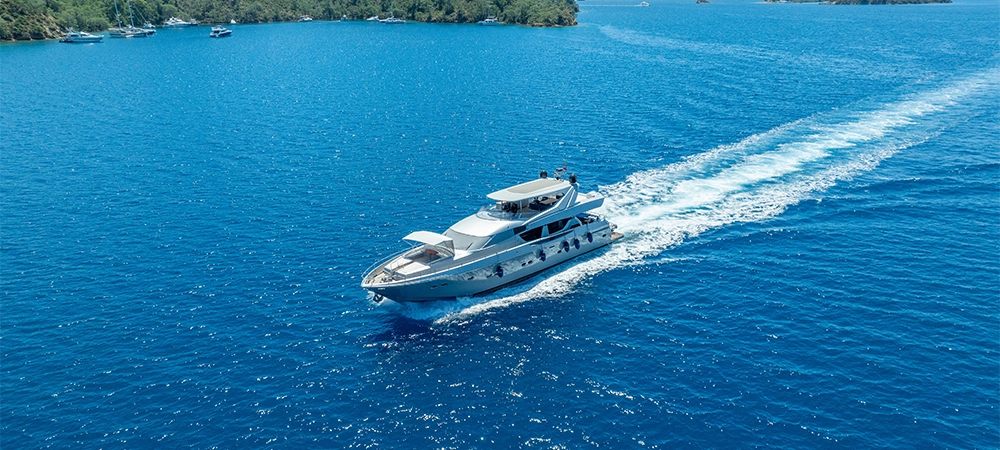Owning a vessel, whether a boat or a yacht, is a significant investment. They can be a huge source of enjoyment, but they also come with risks. Due to this, it’s vital to protect them with insurance, but these two vessels require different coverage. While boat and yacht insurance may seem interchangeable, they are distinctly different types of coverage. Here, we’ll look at the difference between yacht insurance and boat insurance to see which type you should be looking for. Let’s get started!
Understanding the Basics
When it comes to insurance, there is a fairly clear distinction between a yacht and a boat. Generally, boat insurance will cover smaller and less complex vessels. This typically covers boats up to 26 feet in length. This often includes speedboats, fishing boats, and small sailboats.
Yacht insurance is designed for larger and more expensive vessels, which are usually more complex. Due to their size, larger capacity, and greater distances they travel, more comprehensive coverage is required. Due to this, yacht insurance is generally more expensive as there is more of a financial risk.
Coverage Differences
Both yacht and boat insurance will give you coverage for the physical damage to the vessel, along with liability and personal property coverage. However, the extent of this coverage can vary significantly.
Physical Damage
Boat Insurance – Physical damage coverage will protect you against damage to the boat, including the hull, motor, and any attached equipment. This can include protection against many risks, such as fire, collision, and vandalism.
Yacht Insurance – Due to the size of the vessel, more coverage is often needed. This can include tenders, navigational equipment, and additional onboard structures. It can also cover you for international travel, which is less common with boat insurance.
Liability Coverage
Boat Insurance – With boat insurance, you’ll be covered for incidents where you are held responsible for causing injury or damaging property. This will include both bodily injury liability and property damage liability.
Yacht Insurance – Similar coverage is needed with yacht insurance but with higher coverage limits. Extra liability coverage can also be required, such as wreck removal, pollution liability, and even legal expenses coverage.
Navigation and Geographic Limits
Boat Insurance – Small boats aren’t expected to travel as far and can have defined geographic limits. There is often a limit to how far you can travel under your coverage. To go beyond this, you may need a separate policy or additional coverage.
Yacht Insurance – Yachts have the capability to undertake much longer voyages. This can include coverage for international waters. Some policies will allow for seasonal adjustments to the navigation limits.
Crew Coverage
Boat Insurance – Boats are usually just operated by their owners or with some help from a few passengers. Due to this, crew coverage is typically not a consideration. If you do need coverage for this, it will be added as an extra.
Yacht Insurance – Larger yachts will require a crew, and the insurance often covers this. This coverage is required if there are any injuries or accidents involving the crew members while onboard. This can include injury claims, medical expenses, and loss of income.
Personal Property Coverage
Boat Insurance – Personal items on a boat may include the likes of fishing gear, water sports equipment, and personal belongings. Limits on personal items can be quite restricted, with limits on the coverage being lower.
Yacht Insurance – With yachts, more luxurious personal items are expected. Examples can include electronics, artwork, and fine furnishings. The coverage limits are usually high for such items, but additional protection may be required for extremely high-value items.
Cost of Boat and Yacht Insurance
As you’ve probably worked out by now, the costs of boat and yacht insurance can be considerably different. Boats are generally less expensive due to their smaller size, but this can vary. For example, a speedboat used on lakes will have a lower premium than a larger vessel used in coastal waters.
The cost of yacht insurance can vary depending on a wide range of factors. But as a rule, it will be more expensive than boat insurance. Specialized coverage, such as crew liability and extended navigational limits, can further increase costs.
Related Article: https://bucklerins.com/yacht-insurance-for-first-time-owners-what-you-need-to-know/
Why the Distinction Matters
The distinction between these vessels is important and reflects the different risks associated with them. Yachts are often exposed to more challenging environments and a higher risk of theft and vandalism. Due to this, they represent a greater risk to insurers.
Larger vessels can also be subject to different regulatory requirements, especially if they operate in international waters. They are also more of a financial investment. Due to this, owners are more likely to require and benefit from more extensive coverage.
Final Thoughts
While they may seem similar, there is an important difference between yacht insurance and boat insurance. The insurance risk is much greater with yachts. Not only do they generally have a high value, but there is also more to cover with more complex equipment, higher-value personal items, and crews.
Understanding these differences is important for any vessel owner. It ensures that you get the right insurance and are not paying more than you should. If you’re in need of either type of coverage, then contact Buckler Insurance today, and we’ll find the right policy for you.






